
Ivan Guimarães Lins is a Latin Grammy-winning Brazilian musician. He has been an active performer and songwriter of Brazilian popular music (MPB) and jazz for over fifty years. His first hit, "Madalena", was recorded by Elis Regina in 1970. "Love Dance", a hit in 1989, is one of the most recorded songs in contemporary music.
Ithamara Koorax is a Brazilian jazz and pop singer. For several years, she was voted one of the best jazz singers of the world by DownBeat Readers Polls. In 2008 and 2009, Koorax placed third on the "Female Vocalist" category on the 73rd DownBeat Readers Polls, with Diana Krall on the first place and Cassandra Wilson on second,, as well as on the 74th Annual Readers Poll.
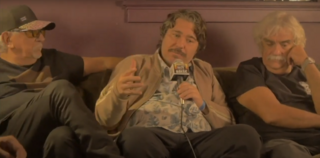
Azymuth is a Brazilian jazz-funk group formed in 1973. The original lineup was a trio composed of José Roberto Bertrami (keyboards), Alex Malheiros, and Ivan Conti. Kiko Continentino joined the group in 2015 as the band's keyboardist after Bertrami's death. As of April 2023, Alex Malheiros is the only surviving original member of the group.

Claudio Roditi was a Brazilian jazz trumpeter. In 1966 Claudio was named a trumpet finalist at the International Jazz Competition in Vienna, Austria. While in Vienna, Roditi met Art Farmer, one of his idols, and the friendship inspired the younger trumpeter to follow a career in jazz.

Mark Howe Murphy was an American jazz singer based at various times in New York City, Los Angeles, London, and San Francisco. He recorded 51 albums under his own name during his lifetime and was principally known for his innovative vocal improvisations. He was the recipient of the 1996, 1997, 2000, and 2001 Down Beat magazine readers' jazz poll for Best Male Vocalist and was also nominated five times for the Grammy Award for Best Vocal Jazz Performance. He wrote lyrics to the jazz tunes "Stolen Moments" and "Red Clay".

A Night at Birdland, Vols. 1 & 2 are a pair of separate but related live albums by the Art Blakey Quintet. They were recorded at the Birdland jazz club on February 21, 1954 and released on Blue Note in 1956. The performance was originally spread out over three 10" LPs as A Night at Birdland Vols. 1–3 (1954).
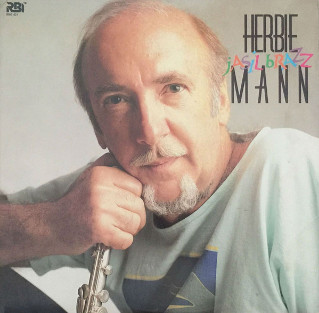
Jasil Brazz is a 1987 album by jazz flautist Herbie Mann. It features two of the members of Trio da Paz as well and Brazilian trumpeter Claudio Roditi and Mark Soskin on synthesizers.
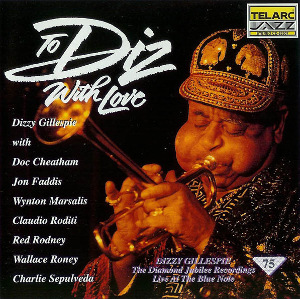
To Diz with Love is a live album by trumpeter Dizzy Gillespie with an array of guest stars recorded at the Blue Note in 1992 and released on the Telarc label. The album, along with To Bird with Love and Bird Songs: The Final Recordings, represent the last recordings made by the trumpeter before his death in 1993.
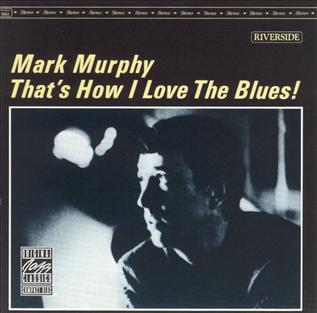
That's How I Love the Blues! is an album by American jazz vocalist Mark Murphy featuring tracks recorded in late 1962 for the Riverside label.

Breath of Brazil is an album by American pianist Joanne Brackeen recorded in 1991 and released on the Concord Jazz label.

Take a Chance is an album by American pianist Joanne Brackeen recorded in 1993 and released on the Concord Jazz label. It is Brakeen's second album of Brazilian music following 1991's Breath of Brazil.

Ivan Miguel Conti Maranhão, also known as Mamão, was a Brazilian drummer, percussionist and composer. He gained prominence as a member of the influential jazz-funk band Azymuth, which he co-founded in 1972.
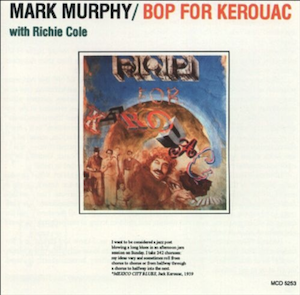
Bop for Kerouac is a 1981 studio album by Mark Murphy.

September Ballads is a 1987 studio album by Mark Murphy.

Stolen Moments is a 1978 studio album by Mark Murphy.
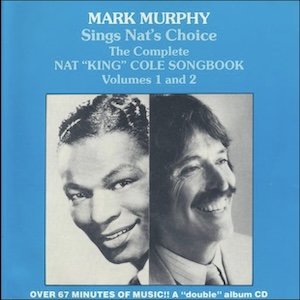
Mark Murphy Sings Nat's Choice The Complete Nat "King" Cole Songbook Volumes 1 and 2 is a 1986 studio compilation album by Mark Murphy.
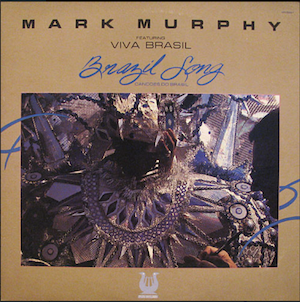
Brazil Song is the 20th album by American jazz vocalist Mark Murphy. It was recorded when Murphy was 51 years old in 1983 and released by the Muse label in the United States in 1984. This album is collection of Brazilian jazz songs.
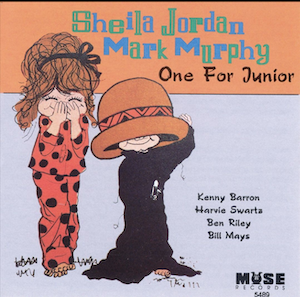
One for Junior is a 1991 studio album by Mark Murphy.

The Artistry of Mark Murphy is a 1982 studio album by Mark Murphy.

Songbook is a compilation album of American jazz vocalist Mark Murphy's Muse Records recordings. It was released by the 32 Jazz label in the United States in 1999. This album is a collection of songs from his Muse years 1972–1991.



















